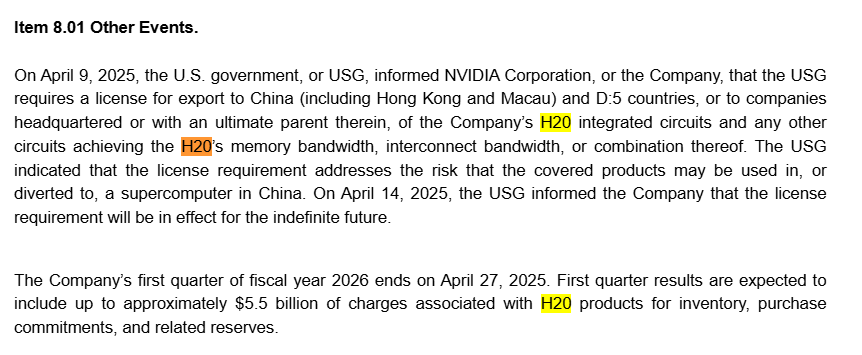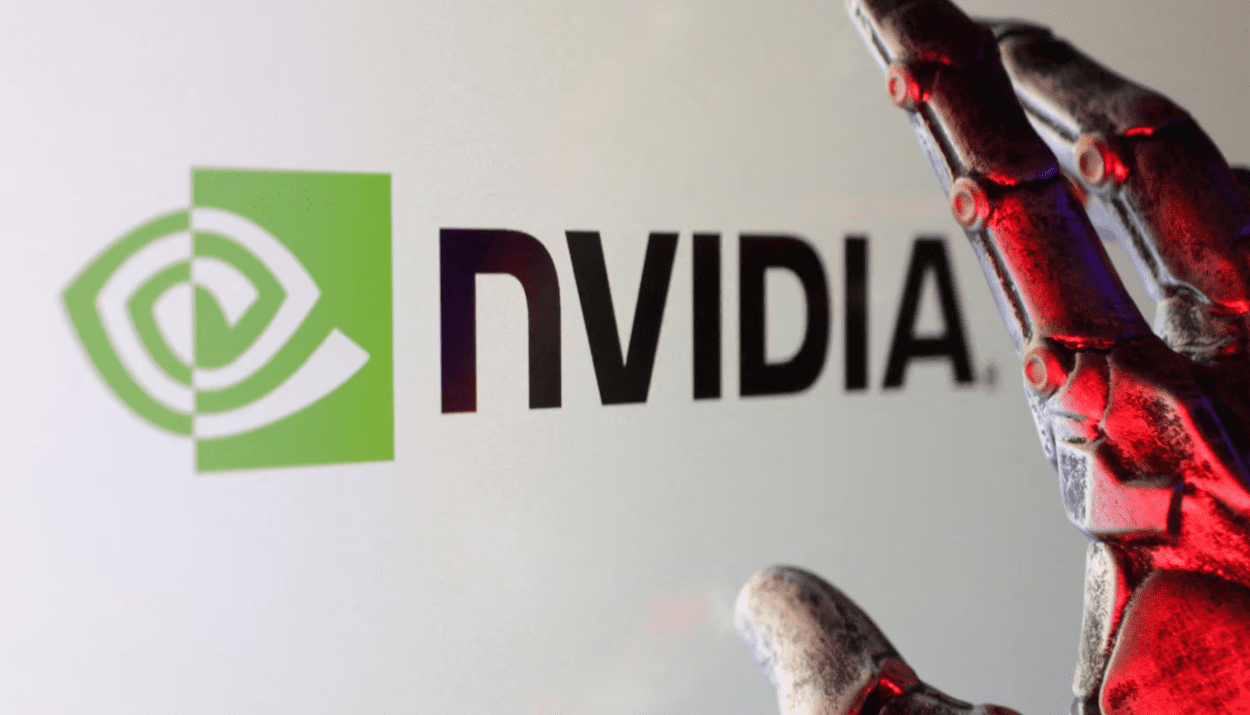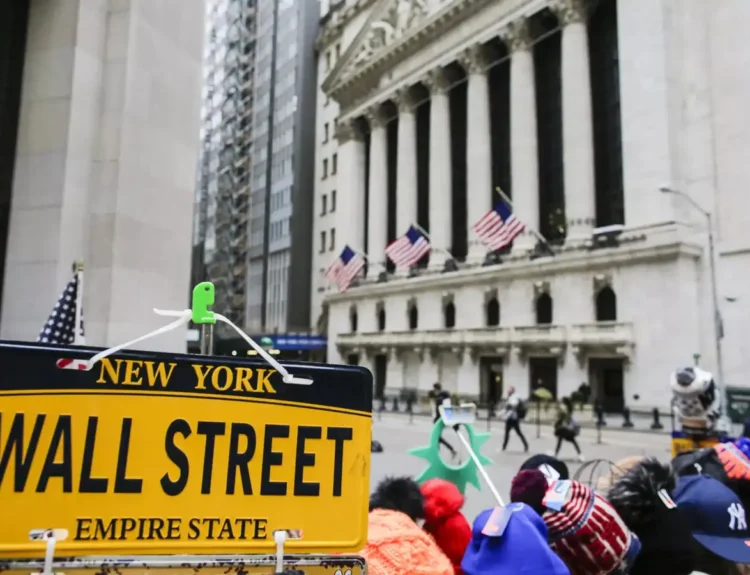Nvidia has confirmed it will take a $5.5 billion charge after the U.S. government imposed indefinite export restrictions on its H20 AI chip to China — its most advanced product legally available in the Chinese market. The announcement sent Nvidia shares down 6% in after-hours trading Tuesday, with AMD dropping 7% on similar restrictions for its MI308 chip.

Why the Ban?
- The U.S. Commerce Department cited national security risks, warning the H20’s high-speed connectivity makes it suitable for building supercomputers — which are subject to U.S. export controls since 2022.
- Tencent, Alibaba, and ByteDance were major buyers ramping up H20 orders for large-scale AI model inference.
“The H20 may not be top-tier in raw compute, but its memory and interconnect speed raise red flags for supercomputer use,” said officials.
The Fallout:
- $5.5B in charges stem from H20 inventory, purchase commitments, and reserves.
- H20 chips were central to Nvidia’s China AI strategy, particularly as demand for inference chips — not just training — surges.
- The Institute for Progress warned that buyers like Tencent may already be using H20s in restricted applications, such as training DeepSeek’s V3 model.
Context:
- The U.S. informed Nvidia of the license requirement on April 9 and made it official on April 14, with no clarity on potential approvals.
- The crackdown comes just one day after Nvidia announced plans to build $500B worth of AI infrastructure in the U.S. with TSMC, Foxconn, and Wistron — a move aligned with Trump’s domestic manufacturing push.
This latest restriction escalates the U.S.-China AI tech divide and puts further pressure on global supply chains, just as inference computing becomes the new AI battleground.
Disclosure: This article does not represent investment advice. The content and materials featured on this page are for educational purposes only.
Related:
China to now pay up to 245% tariffs on imports to US: Trump’s latest move
China appoints new trade envoy in face of tariff turmoil
Rumoured Iphone Fold could cost over $2,000 at launch
What the Market Isn’t Telling You: Gold, Bonds, Hedge Funds & Fed’s Next Move
Mark Zuckerberg defends Meta in social media monopoly trial
Top 10 Social Media Marketing stories this week
Netflix Aims to Join the $1 Trillion Club
Dark colors make products seem more effective










